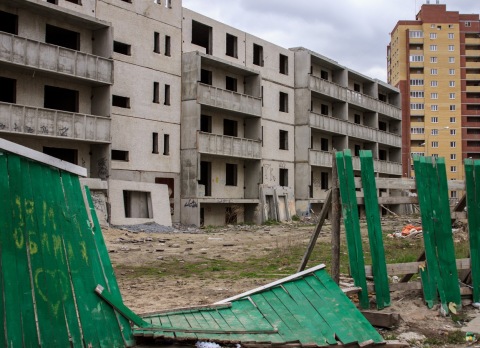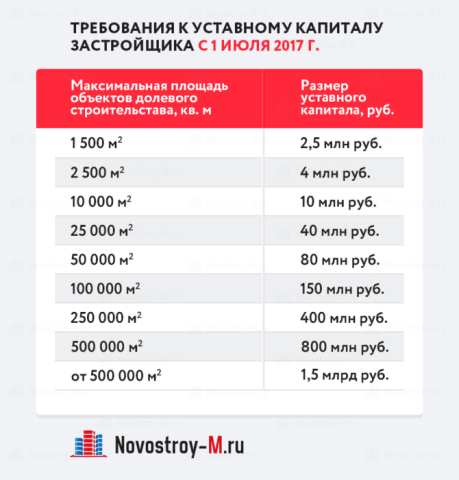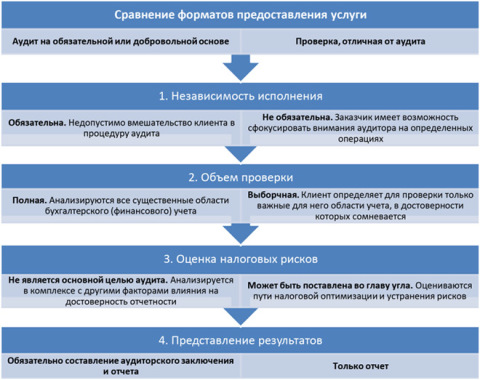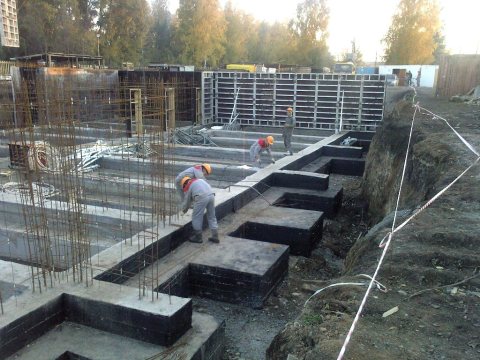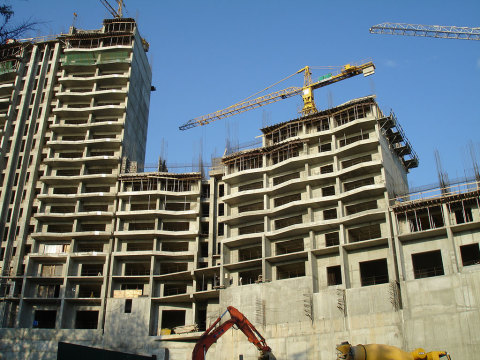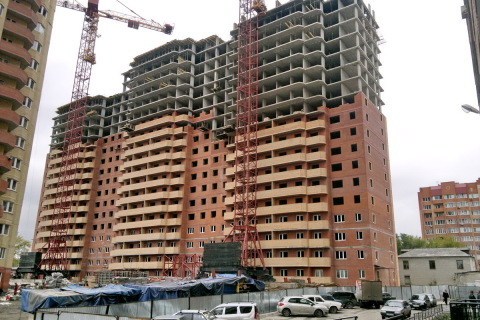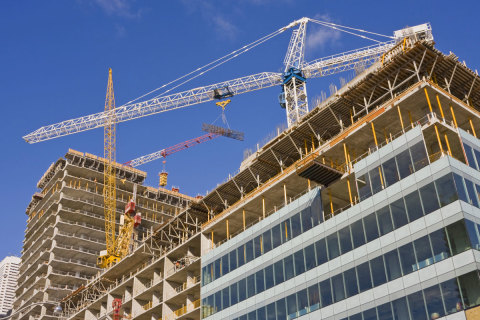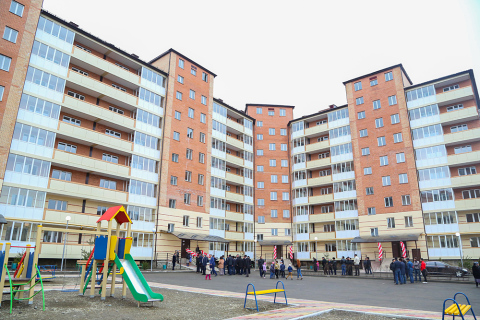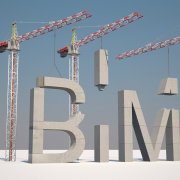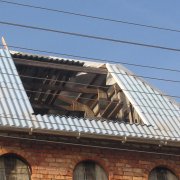Shared construction: changes in Federal Law 214
Since 2004, the fate of objects, as well as citizens who have decided to build housing in shares with a contractor, is regulated by Federal Law 214. The law has been amended by the Government of the country with enviable regularity, since the original version left many loopholes for unscrupulous developers. The latest version of the changes is set out in Federal Law 304, adopted by the Duma and approved by the Federation Council in June 2016. These changes began to operate in January of this year - that is what they will be discussed later.
The content of the article
Developers innovations
So, what new has appeared in the housing legislation since 01/01/2017? Innovations relate not only to the activities of organizations acting as developers. Citizens (equity holders) who are participants in shared construction of real estate, called equity holders, have not only additional rights, but also certain obligations.
Organizational Requirements
Let's start with a list of changes aimed at encouraging developers to order.
Note! The most important step in our opinion is the creation of a unified register of construction companies, which is available on the Internet, in the public domain. It contains information about all enterprises that have a legal right to such activities. These are legal entities that must meet the requirements of the law in all respects.
If any discrepancy is revealed, organizations are deprived of the right to raise funds for the construction of apartment buildings from citizens. So any person who wants to enter into shared construction can check the status of the developer in this registry. Naturally, this must be done before signing the contract and depositing money.
The next, very significant change, was the installation of the minimum amount of the authorized capital of the company. Its size has increased - and besides, it must be fully paid. Only in this case, the developer acquires the right to raise funds from equity holders.
Also, the name of the developer company should not appear in the lists of unscrupulous bidders for the sale of land, as well as other sales transactions carried out in accordance with laws 223 and 44. And note, there is no difference in what quality this organization in They were attended by: contractor, contractor or supplier.
Among the innovations there are also such requirements for developers:
- Their “track record” should not contain court decisions imposing an administrative penalty in the form of suspension of activity;
- Bankruptcy and liquidation procedures should not be carried out;
- There should be no tax arrears;
- The director and the chief accountant of the construction company should not have previous convictions under articles related to economic crimes, as well as penalties prohibiting activities in the construction sector, as well as deprivation of the right to occupy the indicated positions.
The size of the authorized capital of such an organization is determined depending on the area of the facilities that it intends to erect.So now firms that have a purely formal registered capital of a ridiculous amount of 10,000 rubles will not be able to start building houses at all.
All these innovations are designed to block one-day firms access to the real estate market - because they are formed for this purpose, so that, having received the money of interest holders, go broke and “dissolve”.
Informational resources
In the fight against this evil, amendments related to the information policy of the developer will also help. Thanks to them, the law appeared requirements for the official websites of such organizations. On their websites, in relation to real estate objects on which funds of citizens are attracted, the following documents should be posted:
- The results of the audit for the year of the enterprise;
- The results of the examination of the project and the accompanying documentation on which the house will be built;
- A report issued by an authorized body of the constituent entity of the Russian Federation confirming the compliance of the construction organization, as well as its project declaration, with the requirements of this law.
On a note! Without the above-mentioned document, the company will not be able not only to register the DDU (shared construction agreement), but even to advertise the object on its own website.
Also in the list of documents that should be published on the website of the developer:
- Building permit;
- A detailed, high-quality and without any errors completed project declaration, which contains almost 160 points;
- Documents of property rights (whichever it is) on the land allocated for construction, its area and cadastral number;
- In a situation where the size of the authorized capital is less than stipulated by law, an agreement is published that confirms that the developer has a guarantor in which a third party assumes obligations under contracts with citizens.
Disclosure of information also involves posting on the website of the developer a sample contract with citizens, and publishing photos at all stages of construction.
It should look something like this:
The law also requires that the rights to the site domain belong either to the developer himself or to his guarantor. So a company that wants to stay on the real estate market is required not only to properly execute all the documentation, but also to put its information resources in order.
Why do I need a compensation fund and escrow accounts
Since the beginning of this year, developers have been entrusted with such a duty: they must transfer one percent of the value of the object to a compensation fund, which is designed to help equity holders. If suddenly the construction company goes bankrupt, then the construction can be completed at the expense of this fund. Agree, this is some kind of guarantee that interest holders will receive their housing in any scenario.

- The only bad thing is that this law can not be applied to already under construction objects, so equity holders, who were deceived earlier, can not count on his help. But for those facilities that are just starting to be built in 2017, there should not be such problems in theory.
- Additional guarantees will also be provided by such a measure as the opening of a specialized account in a bank by a developer. It is called escrow, and has its own characteristics. The mechanism for its use is quite simple: funds are received to this account through DDU, which are blocked by the bank until completion of construction, and the transfer of housing to equity holders. If the construction company has not complied with the terms of the contract, the bank simply returns their money to citizens.
- In the amendments to Federal Law 214, opening an escrow account is advisory in nature - that is, this action is not mandatory. But the state creates conditions under which it will be beneficial for developers. For example, certain benefits are provided for them regarding liability insurance, as well as bank guarantee.
Note! The question arises: "And where is the guarantee of the return of funds, after all, among banks there are those who should not be trusted?" The answer is simple: only financial and credit organizations that meet the requirements of the Government of the Russian Federation receive the right to open escrow. Simply put, these are banks in which you can place state budget funds. In addition, funds of up to 10 million rubles on an escrow account are insured by the state.
State regulation of shared construction
Amendments to the Federal Law 214, made their own adjustments to the scope of state regulation of shared housing construction. The powers of the authorities exercising oversight in this area have been significantly expanded.
- First of all, now the movement of equity holders' funds is strictly controlled - targeted, non-targeted spending. Also, the developer observes compliance with the new requirements - up to the placement of information, as mentioned above. Strict control is also subject to accounting of funds spent on construction.
- The authorization of the authorities with functions that allow them to exercise control over the activities of cooperatives of housing cooperatives has also become a significant amendment to the law. It is they, due to abuse and outright arbitrariness, in the first place and have a bad reputation.
- Now ZhSK are obliged to quarterly provide information on their activities, as well as on the fulfillment of their obligations to citizens who have entered into joint construction with them.
Note! And one more important detail: now the misuse of funds is also considered the transfer of money from investors, intended for new construction, for the completion of long begun, and frozen due to lack of finance facilities. In article 18 of the new edition of FZ 214, there is a clear list of articles to which developers can direct funds of interest holders.
If earlier construction organizations kept general records for all objects, now the law obliges to keep separate documentation related to financial activities for each house separately. After a calendar year, these reports are subject to audit, and if it reveals the fact of misappropriation of funds of interest holders, the head and chief accountant of the company will be held personally liable.
What's new in law for equity holders
Some changes have been made to article 5 of the law regarding the price of the contract. Previously, it was determined by summing up the general financial and labor costs of the developer related to the creation of a cottage or apartment, in connection with which the shareholder did not always understand the mechanism of price formation.
What now
Now, the contract will indicate the full price of the apartment, determined by multiplying its total area (including terrace, or loggia) by the cost per square meter. This method of determining the price of housing under the contract is more transparent, and allows the shareholder to verify its correctness.
As with any product, a guarantee is set for apartments. Upon completion of construction and signing of the act of putting the house into operation, the developer transfers the apartments to equity holders. At the same time, they should be provided with detailed instructions for the operation of premises and communications.
In it, for example, it can be indicated on which partition you can not hang heavy furniture or equipment; how to use an individual heating system, or to operate a water heater.
If disputes arise regarding defects in the apartment, the developer will not eliminate them if he can prove that they were formed through the fault of the shareholder. However, if the builder is guilty, then the probability of paying the penalty to the shareholder will be eliminated. This nuance in the new version of the law is also stipulated.
Is a unilateral cancellation of the contract possible
In the old edition of Federal Law 214, it was forbidden to refuse to fulfill obligations under the DDU unilaterally. If the initiator was the equity holder, then he could only file a lawsuit with the court.
- It was taken into account if significant changes were recorded in the design documentation of the house. However, at the same time, no clearly specified examples were given that could be guided by. That is, the objectivity of the assessment of the situation, in fact, was left to the court.
- Now, the interest holder is legally assigned the right to refuse the DDU in certain situations and without a court. According to the amendments to the law, the shareholder has the right to terminate the contract if the stipulated total area of the premises is exceeded, for which, of course, would have to be paid.
- In the standard contract, the maximum limit for such an increase should be set - this is 5%. And it concerns not only the total area of the apartment, but also the ratio of residential and non-residential areas - for example: if the loggia was significantly increased, and the kitchen at the same time became small.
- However, the refusal of the shareholder to withdraw from the contract without reason - that is, if the developer regularly fulfills his obligations, is unacceptable. So, citizens will have to go all the way regardless of changed financial opportunities or intentions.
Changes made to Federal Law 214 are aimed at eliminating unscrupulous developers from the residential real estate market. Accordingly, there should be no real estate investors whose rights have been violated and hopes have been deceived. Well, how will it turn out in practice, and what impact will all these innovations have on the sphere of housing construction in proportion with the developer, as usual, time will tell.
The experts have no doubts about one thing: the protection of interest holders that is so effective at first glance will certainly cause a rise in property prices. Of course, this will not happen overnight. Simply, unable to withstand the new requirements, small construction companies will leave the scene, or they will merge with larger holdings. Competition in the construction market will become less - and without it, as you know, a monopoly arises, in which prices always rise.
